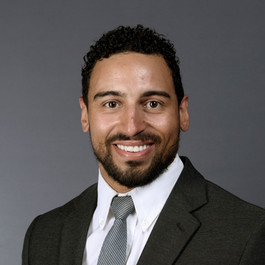Tyler Hamilton Product Manager at Capital One

Hometown
Rockford, IL
Undergrad
Olivet Nazarene University, BS in Forensic Chemistry
Job Before Kellogg
US Army, Special Operations
Summer Internship
Product Manager at Capital One
Activities at Kellogg
Co-VP of Academics for MMM Student Experience Committee, Section Leader for class of 2024, Co-VP of Kellogg Wilderness Club, Co-VP of Kellogg Wine Club, Special K Band (drummer)
Affiliated Programs
About
Tyler is a Product Manager at Capital One, leading product development initiatives within the Card line of business. His focus is on modernizing the credit card ecosystem through cloud-based platform adoption and event-driven architectural design. Tyler graduated from Northwestern University’s MMM Program in 2024. During the program, he worked as a consultant at ZealStrat, leading projects to design a predictive cost analysis tool for a multinational automotive manufacturer and integrate AR/VR technologies to align customer perception with production quality. Prior to graduate school, Tyler served in U.S. Army Special Operations, leading psychological operations teams that used behavioral data analytics to shape decision-making and influence target audiences in complex, rapidly changing environments. Across his career, he has been passionate about combining data-driven insights, human-centered thinking, and strategic leadership to drive meaningful innovation.
Q & A
How has MMM made a difference in your career?
The MMM Program gave me frameworks and hands-on experience that sharpened my ability to translate human insights into business impact. Courses like Research, Design, Build (RDB), Business Innovation Lab (BIL), and Mindful Product Management helped me build a disciplined approach to problem solving—starting with who we are solving for, why it matters, and ensuring that innovation is grounded in real user needs. MMM helped me bridge my past experiences with a structured, yet creative approach to modern product development, making me a more thoughtful and effective builder.
What value do you think MMM graduates bring to industry now?
In today’s world, tools like AI are advancing at an unprecedented pace, but what remains rare and valuable are leaders who can think holistically, communicate problems clearly, and innovate through a human-centered lens. MMM graduates bring the ability to pair deep empathy with strategic thinking, using powerful technologies without losing sight of the users they were initially built for. That blend of business rigor, design intuition, and user-first thinking is critical in shaping the next generation of impactful products and organizations.
What advice do you have for a student just starting the MMM Program?
Lean into the curriculum and the opportunities around you—you’ll get as much out of the program as you put in. The frameworks and skills you’re learning may feel unfamiliar at first, but the more you engage, the more natural they will become. Building creative problem-solving muscle is a craft; it requires practice, reflection, and a willingness to be uncomfortable early on. Embrace it. Over time, you’ll start to see opportunities and solutions through a much sharper, more empathetic lens—and that’s where real innovation happens.
